KI President visited Makerere University in Uganda and partners in Rwanda to strengthen global collaborations
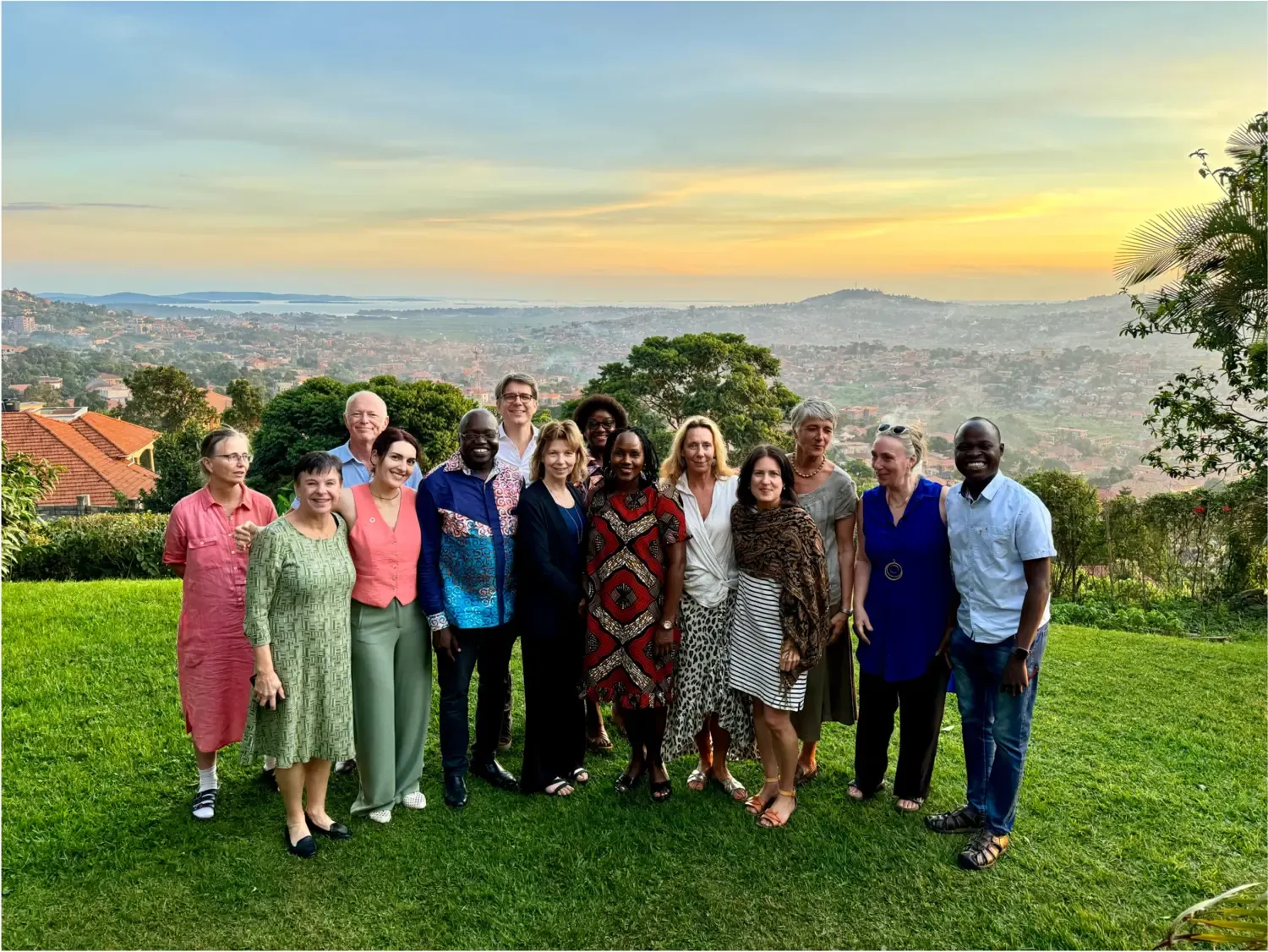
A delegation from Karolinska Institutet (KI), led by KI President Annika Östman Wernerson, travelled to Uganda and Rwanda in November 2024. The delegation visited Makerere University in Uganda and met with representatives from the University of Rwanda and the University of Global Health Equity in Rwanda, emphasizing Karolinska Institutet’s commitment to global collaborations, which rely on strong relationships, contextual knowledge, and robust infrastructure.
Embassy of Sweden in Uganda
As an introduction to Uganda, the delegation met with Maria Håkansson, the Ambassador of Sweden to Uganda; Lotta Segerström Tejpar, Head of the Political Section; and Tomas Lundström, Health Counsellor. The purpose of the meeting was to learn about the Swedish government's work in the country through the embassy and discuss opportunities for continued engagement and collaboration.
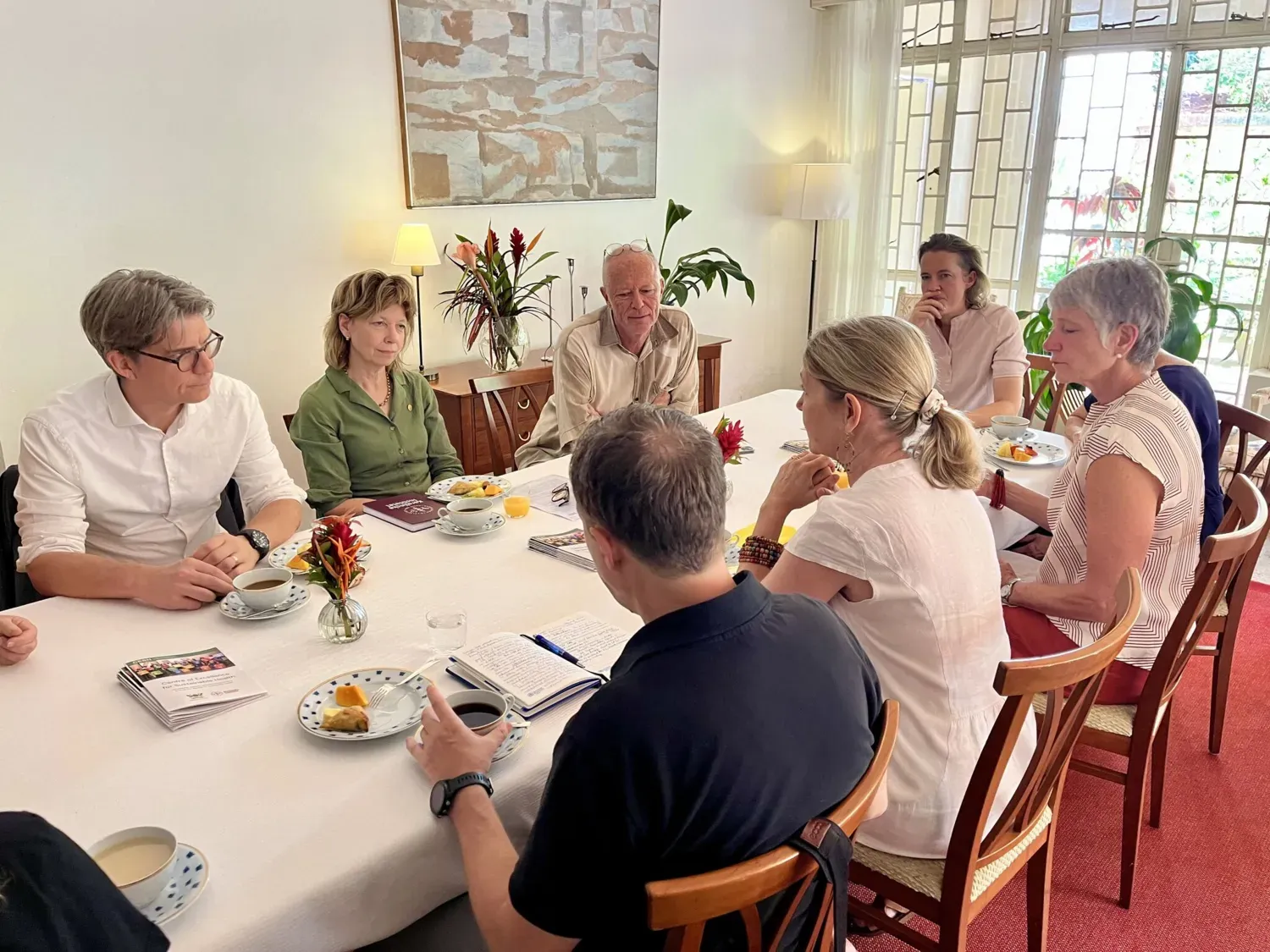
School of Public Health
KI delegation met with Professor Rhoda Wanyenze, Dean of Makerere University’s School of Public Health, to learn about the extensive collaboration between the two universities and to explore ways to strengthen it further. The discussion focused on research collaboration, leadership programs, and capacity-building initiatives within the Centre of Excellence for Sustainable Health—a partnership dedicated to developing capacity and mobilizing actions to drive the agenda for sustainable health.
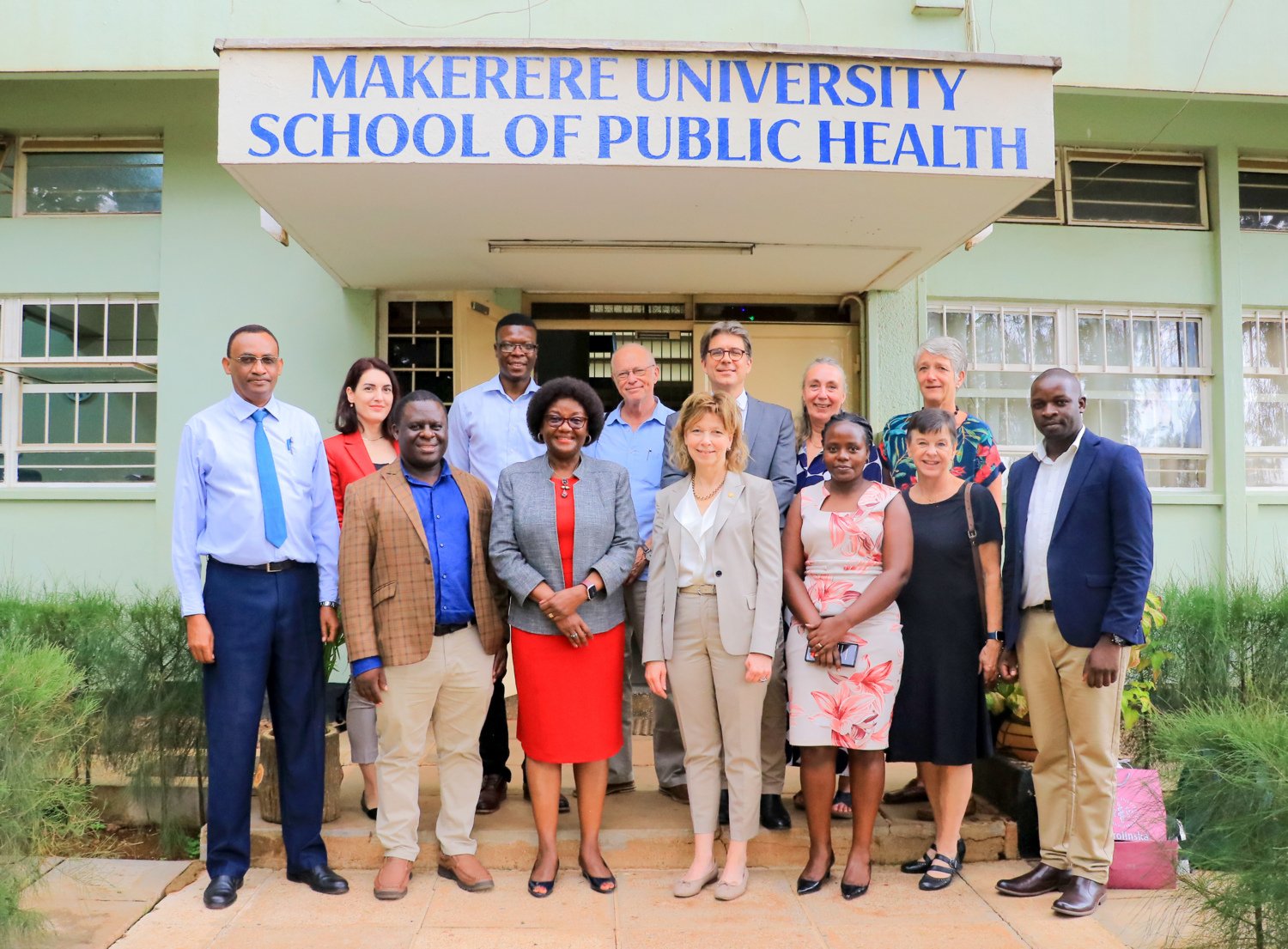
"We discussed the global health challenges we all face, particularly how the environment and climate impact health. It was a valuable and forward-looking meeting, highlighting that the impact of climate change on health is one of the challenges we all share."
College of Health Sciences
Annika Östman Wernerson attended a leadership meeting at Makerere University’s College of Health Sciences. The meeting brought together Professor Damalie Nakanjako, Principal of the College, alongside the Deans from the schools within the College (School of Medicine, School of Public Health, School of Biomedical Sciences and School of Health Sciences), as well as members of the steering committee for the Centre of Excellence for Sustainable Health (CESH). During the session, the deans presented reports highlighting successful outcomes of the ongoing collaboration with Karolinska Institutet.
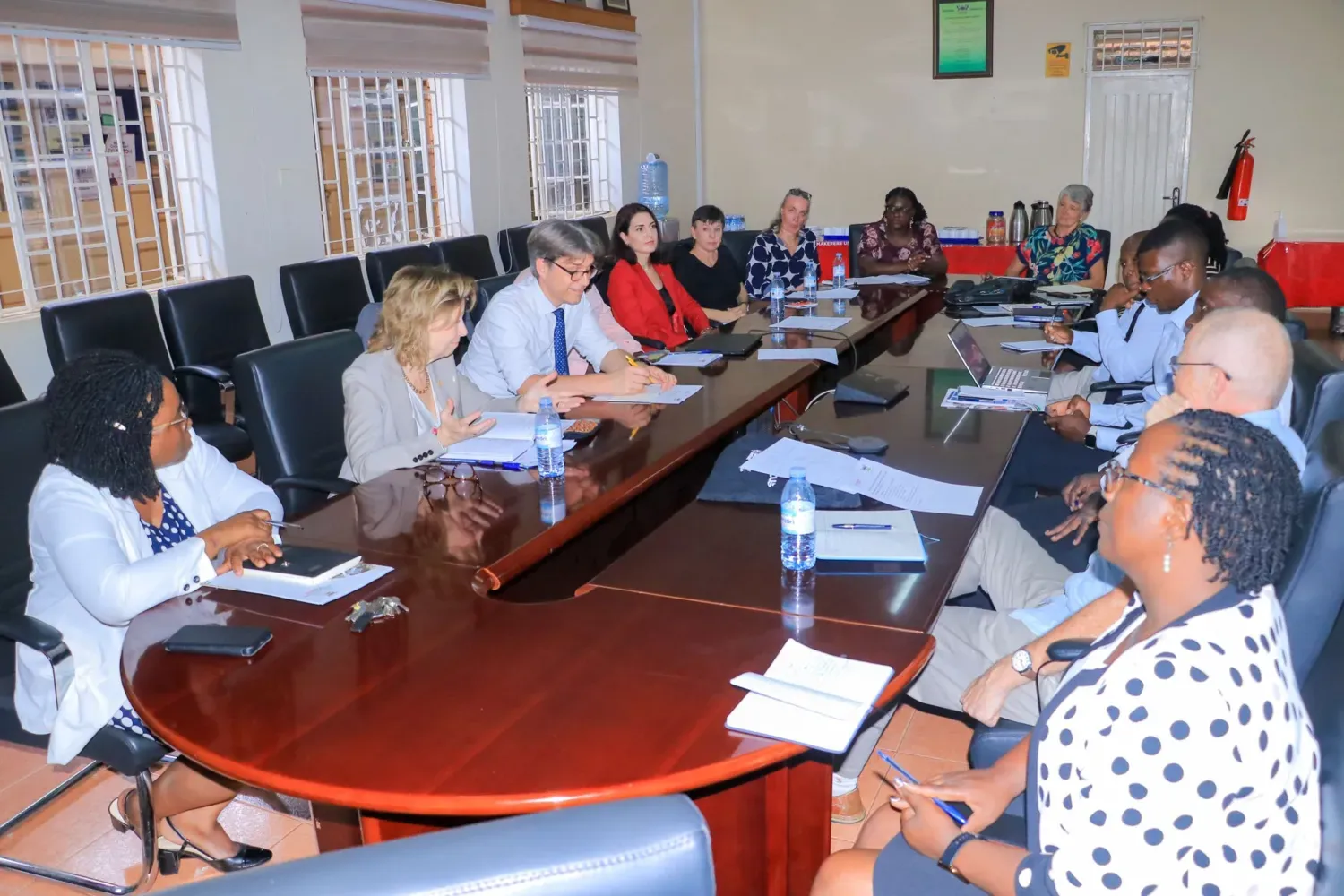
"The collaboration between Makerere University and Karolinska Institutet is an inspiring example of such a strong, rewarding and long-lasting partnership. A joint effort of working together for almost a quarter of a century."
KI-MAK Alumni event
At the Alumni event at Makerere University, President Wernerson celebrated the achievements of the nearly 25-year partnership together with alumni, highlighting a collaborative doctoral program that has produced nearly 50 doctoral graduates from Makerere and resulted in over 500 peer-reviewed articles. President Wernerson praised the partnership as a "remarkable example of sustained collaboration," noting its accomplishments and the extensive participation of over 200 students and 150 educators in transformative academic exchanges.
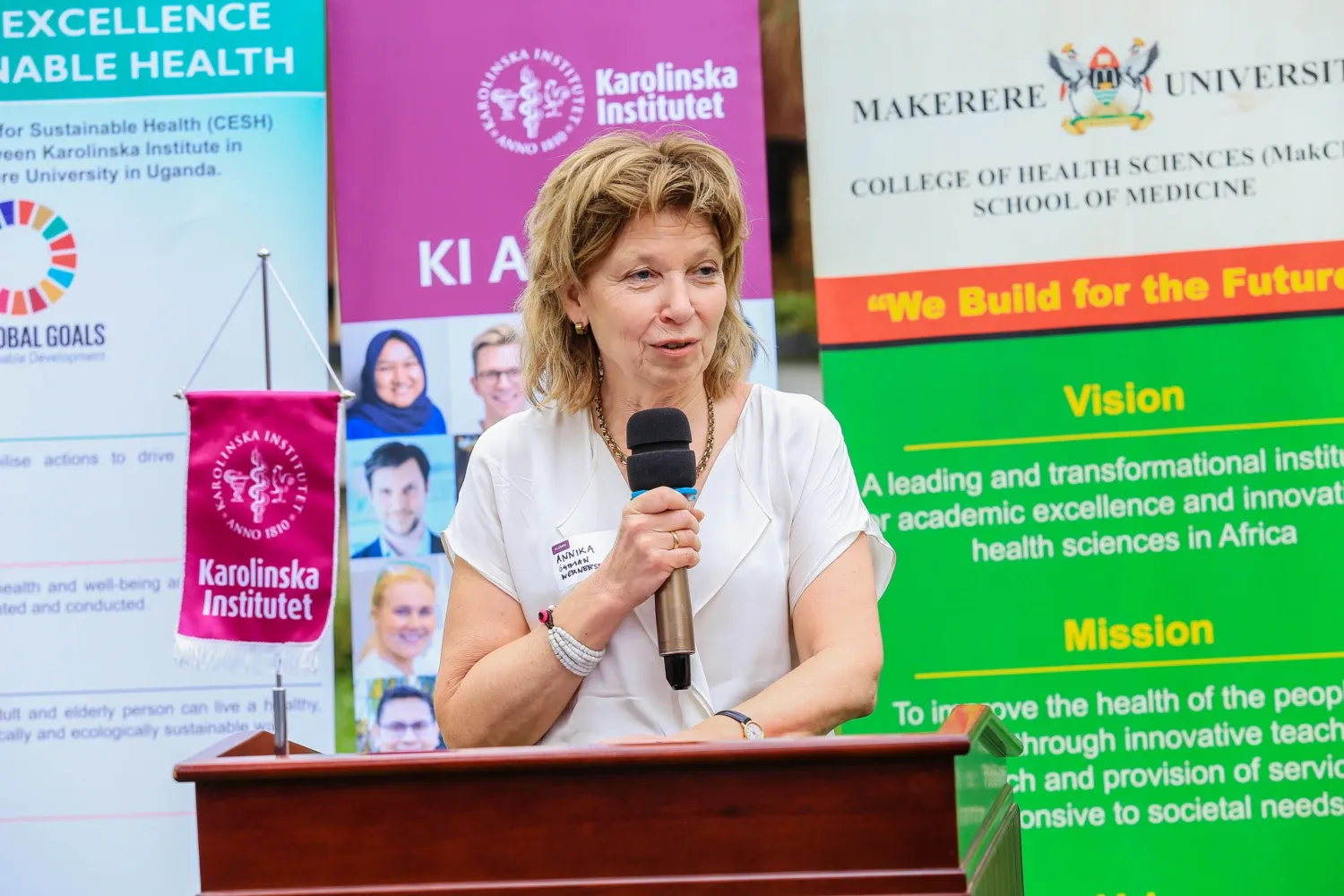
"I would like to sum up the importance of today’s event with one word: Collaboration. Collaboration is about creating and nurturing lasting partnerships that enhance the mutual purposes and goals of our institutions. Partnerships that shape the future."
University leadership meeting
President Wernerson met with Professor Barnabas Nawangwe, Vice Chancellor of Makerere University, in the newly inaugurated main building. Discussions focused on strengthening their collaboration, advancing pedagogical research, and preparing students to become leaders in public health. The Vice Chancellor highlighted President Wernerson’s expertise in kidney and transplant science, as well as her experience in clinical pathology.
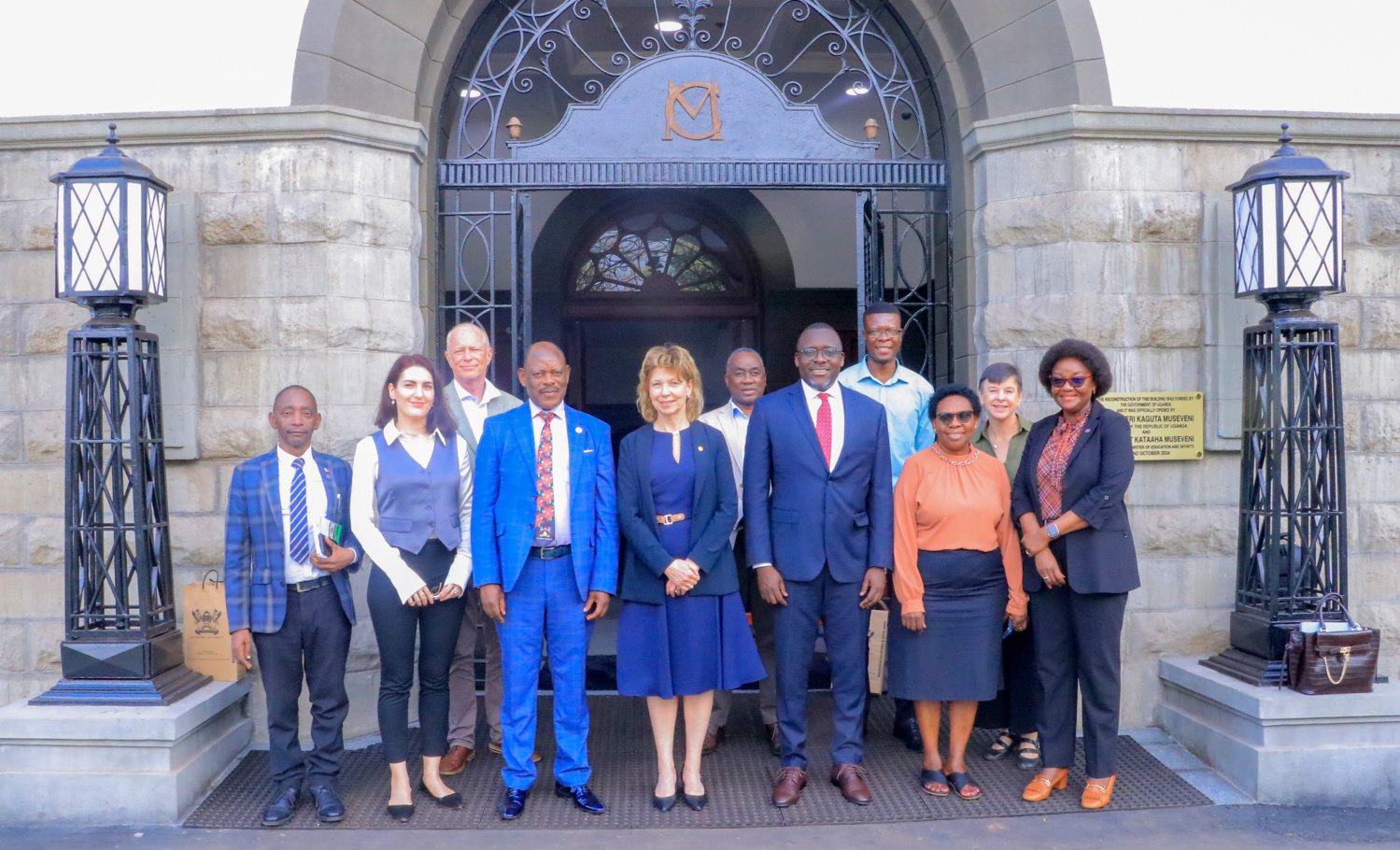
"I was particularly inspired by Professor Wernerson’s expertise in kidney and transplant science, her commitment to patient care for chronic kidney disease, and her experience in clinical pathology."
Mulago Hospital
During the visit to Makerere University, President Wernerson also visited the Nephrology Unit at the Mulago National Referral Hospital. As an expert in kidney and transplant science, President Wernerson's profound knowledge and experience in clinical pathology, combined with her commitment to improving patient care for those with chronic kidney disease, made her visit both inspiring and highly relevant to the field. The Mulago Nephrology Unit hosted President Wernerson with a comprehensive presentation, showcasing their innovative approaches to nephrology care, research initiatives, and impact on the local community.
"I had the chance to see the unit's operations up close and connect with the incredible healthcare professionals on the frontlines. The experience highlighted the importance of shared expertise in addressing global health challenges, leaving a lasting impression as I witnessed the unit's ongoing mission."
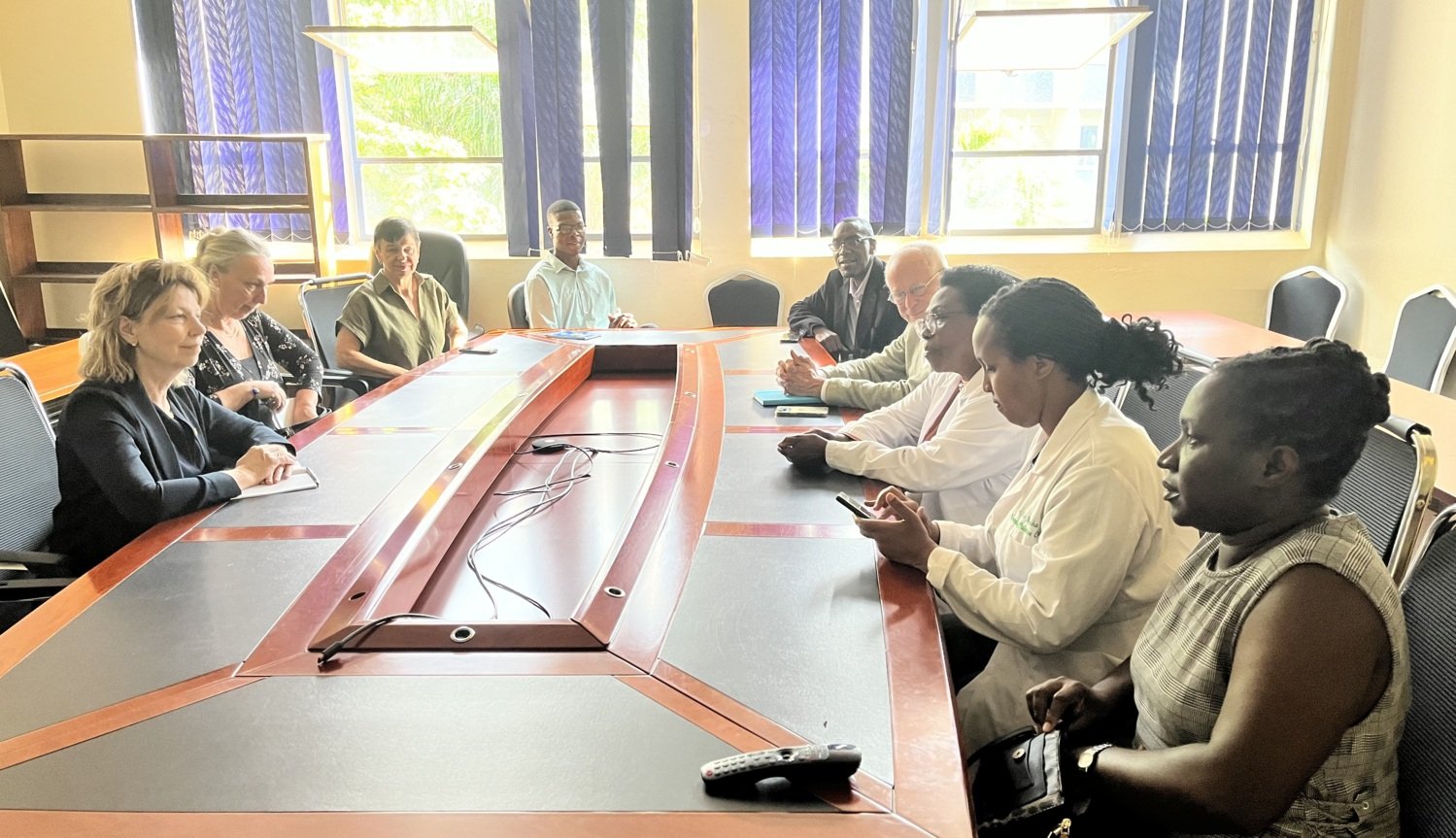
Naguru Hospital
On November 12th, President Wernerson visited China-Uganda Friendship Hospital Naguru, where the delegation observed the remarkable work of the MIDWIZE team, which includes colleagues from Makerere University, Karolinska Institutet, and Naguru Hospital. Inspired by the team's dedication and collaboration, President Wernerson engaged in a meaningful conversation about the importance and impact of their work.
The MIDWIZE project focuses on bridging the gap between evidence and practice in labor care through structured quality improvement. It connects leaders and decision-makers from education, regulation, associations, and clinical settings. By uniting experts from diverse fields, MIDWIZE aims to improve care delivery and ensure midwives and healthcare teams are well-equipped to provide optimal support for mothers and newborns.
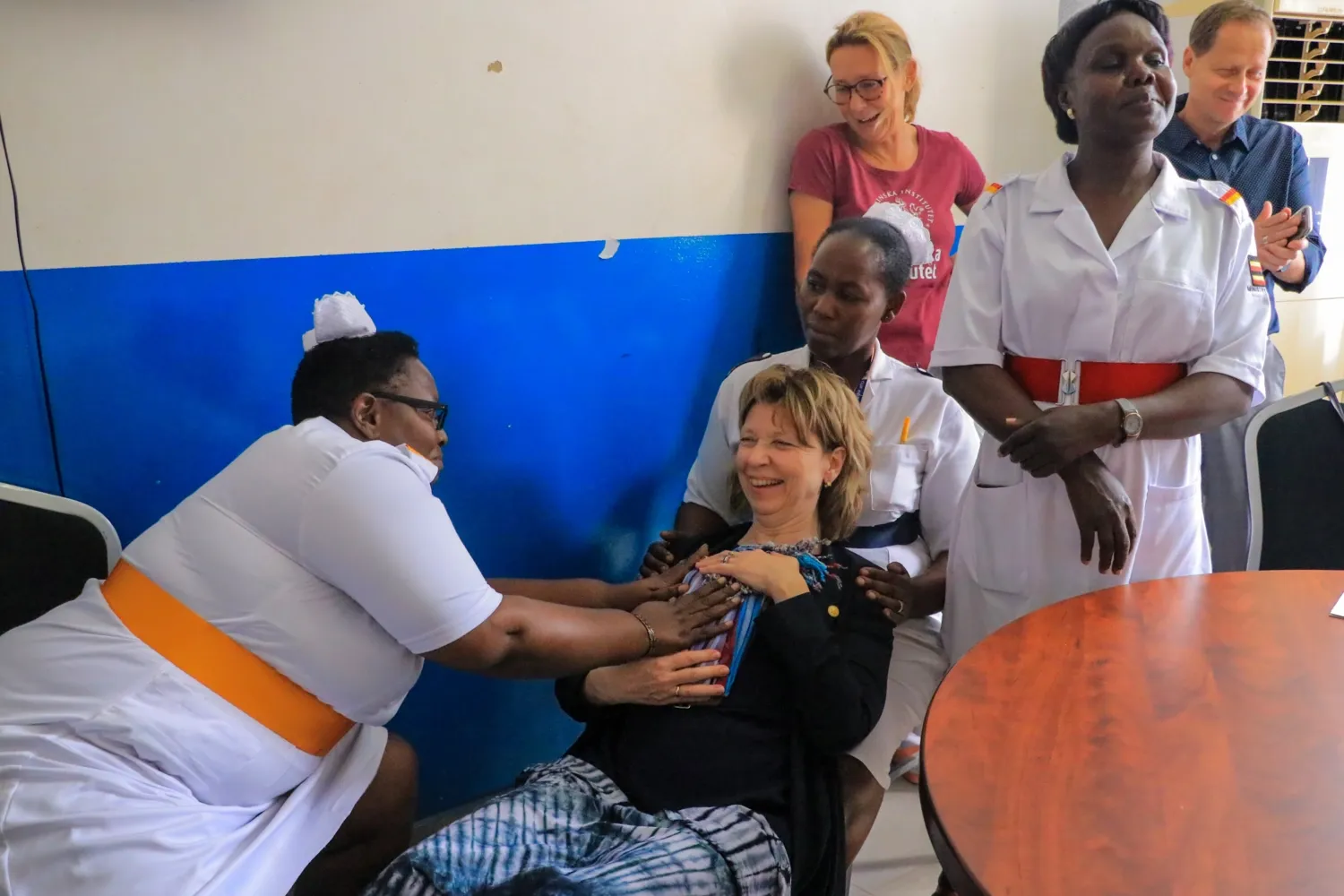
"The visit to Uganda has been deeply inspiring. We’ve met incredible people, witnessed firsthand the impact of collaboration, and strengthened our connections with colleagues. Their dedication, passion, and commitment to making a difference are so encouraging and showcase what truly matters."
Africa Medical and Behavioural Sciences Organization (AMBSO)
On November 13th, President Wernerson visited AMBSO, one of the leading research and service-based organizations contributing to national and international knowledge on HIV, infectious diseases, and non-communicable diseases. AMBSO, established in 2016 by a group of Ugandan epidemiologists, has made significant contributions to HIV prevention science over the years.
Since its inception, AMBSO has fostered strong collaborations, including with researchers from Makerere University School of Public Health and Karolinska Institutet in Sweden. These partnerships have been instrumental in advancing AMBSO's mission to improve health outcomes and contribute to the global fight against infectious and non-communicable diseases.
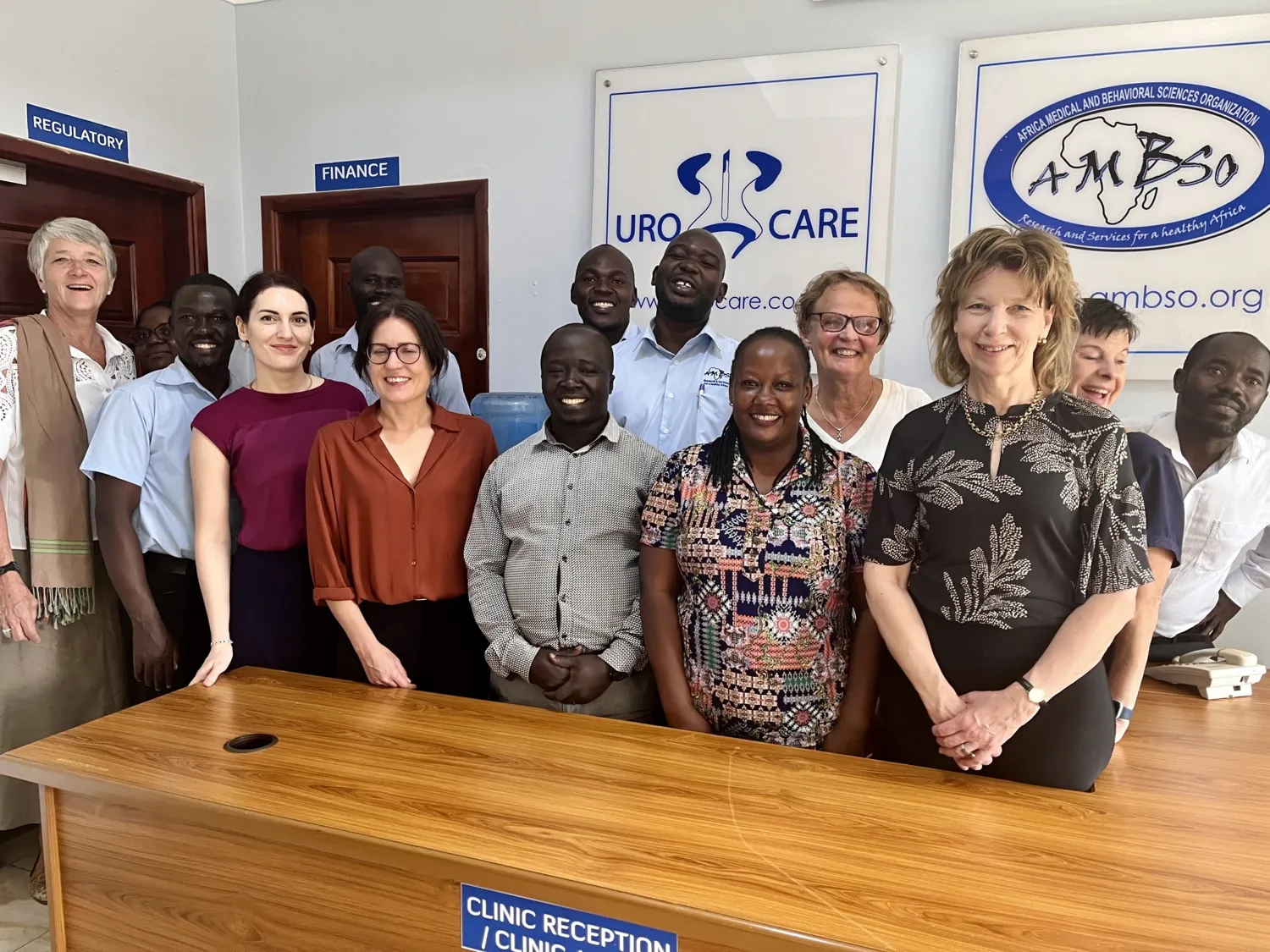
After a successful visit to Makerere University in Uganda, the journey continued to Rwanda, where meetings were scheduled with staff at the Swedish embassy, including the newly appointed Ambassador Dag Sjöögren.
University of Rwanda
On November 15th, during her visit to the University of Rwanda, President Wernerson emphasized strengthening research partnerships, supporting clinical trials, and advancing vaccine biomanufacturing efforts. KI's collaboration with Rwanda spans more than 10 years, supported by Sida, and includes joint initiatives such as the Grant’s Office. Recent developments include the SANOFI, International Vaccine Initiative and Team Europe Initiatives support for clinical trials and on the potential establishment of a basic science research organization, a "SciLife Rwanda”, a new hub for basic scientific and health research. These collaborations are instrumental in advancing health and addressing global challenges by sharing knowledge, fostering innovation, and creating sustainable solutions in the region. Africa Centers for Disease Control points out the need for “upstream” research and development capacity on the continent, to complement the many countries setting up “fill and finish” facilities for vaccines and pharmaceuticals.
Known as Africa's Singapore, Rwanda has ambitious goals in life sciences and plays a key role in EU–Africa Union collaboration, particularly in the area of Vaccine Independence. Rwanda is also home to the International Vaccine Initiative Africa Office, as well as the African Medicines Agency. The University of Rwanda is also hosting the non-profit UVU Africa in a novel BioEconomy Hub, including an open access lab.
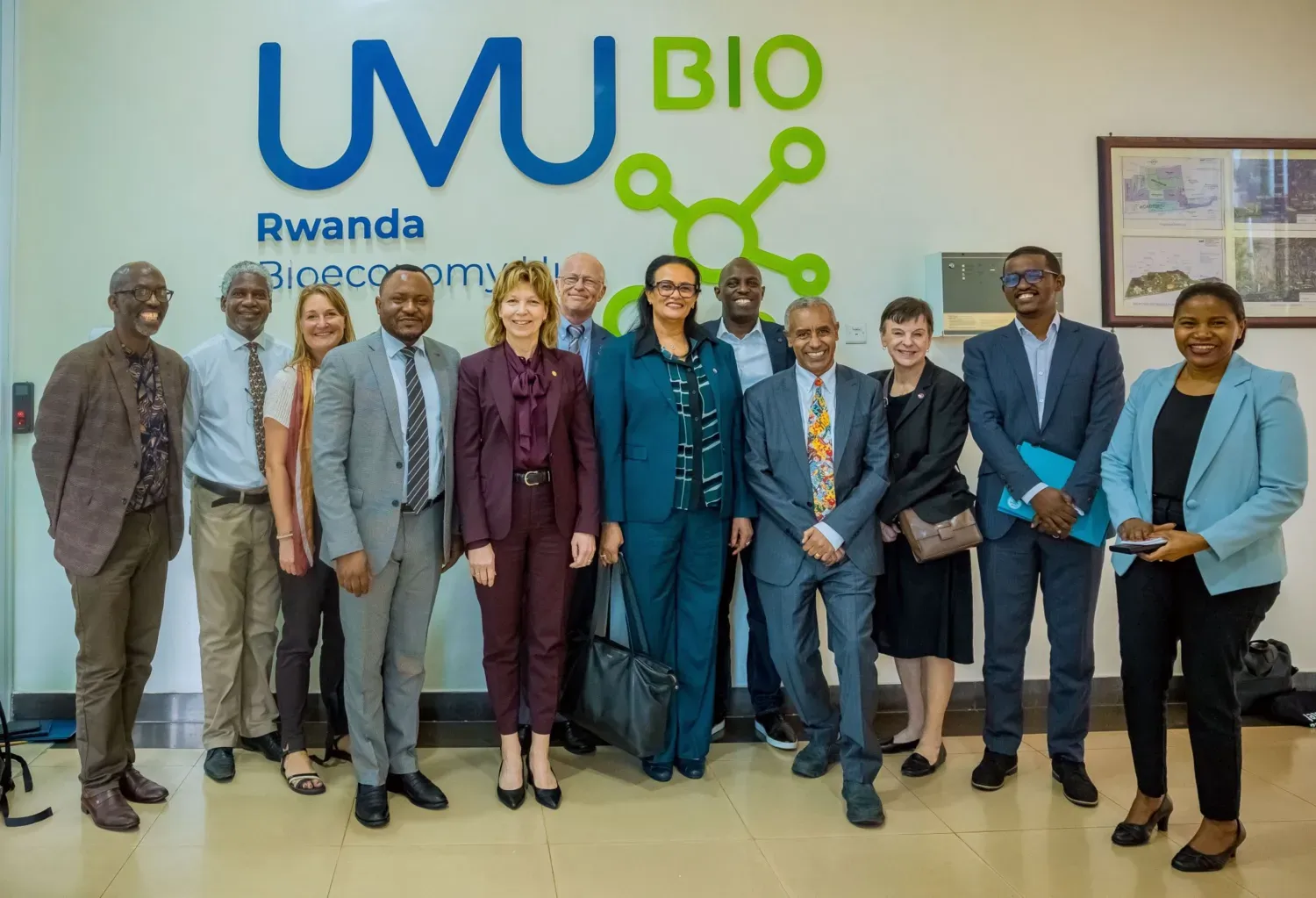
The President also met with the University of Global Health Equity, with whom KI is co-organizing the Health Diplomacy initiative. During the visit, discussions commenced regarding the executive Global Health Diplomacy Program, a component of the Africa-Based Global and Regional Health Diplomacy Initiative. This initiative seeks to build essential health diplomacy skills across the region, aiming to create a sustainable model for African health diplomacy. The discussion also highlighted the importance of closer collaboration in research and research training.
Why global collaboration is key to advancing knowledge and health
Karolinska Institutet (KI) recognizes the importance of global collaboration as a cornerstone of its strategy to improve global health and advance medical research. Aligned with KI’s Strategy 2030, which strives to advance knowledge about life and strive towards better health for all, KI's partnerships with institutions in Africa aim to address some of the most pressing global health challenges. These collaborations help fulfill several key objectives:
- Delivering education suited to a globalized world: By collaborating with African universities, KI enhances its educational programs to address diverse global health challenges, preparing students for healthcare settings worldwide.
- Improving global health: These partnerships foster joint research efforts aimed at addressing urgent health issues, such as infectious diseases, chronic conditions, and the impact of climate change on health.
- Accessing African genomics, pathogens, and health systems for advanced research: Africa's genetic diversity, public health challenges, and varied ecosystems provide valuable insights for medical research. Collaborations with African universities allow KI to explore new frontiers in genomics, pathogen studies, and health systems.
- Mutual learning in the face of climate and health challenges: KI collaborates with researchers and institutions in African countries to gain insights into addressing health issues related to climate change, limited resources, and infectious diseases, fostering mutual learning and innovation.
- Addressing future pharmaceutical markets and workforce needs: By collaborating with African institutions, KI gains a deeper understanding of the evolving pharmaceutical markets and workforce needs in Africa, helping to develop sustainable solutions for the future.
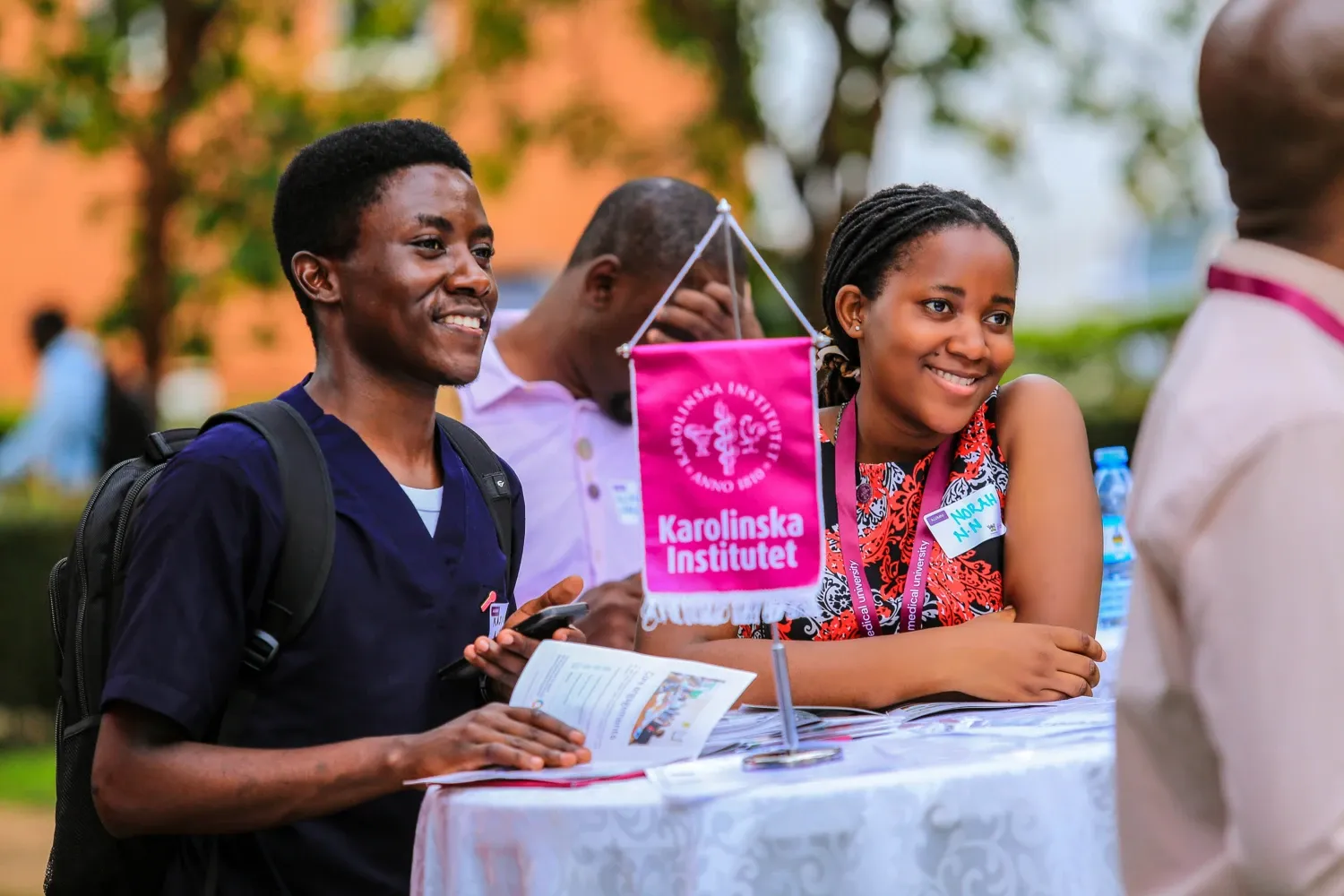
"I had the privilege of benefiting from the collaboration between Karolinska Institutet and Makerere University, and it has been a life-changing experience. Thank you for your efforts in fostering global partnerships and creating opportunities for students like me".
KI’s long-standing partnership with Makerere University in Uganda is an exemplary model of successful collaboration, having spanned over 25 years. This partnership has involved joint research projects, educational exchanges, and significant contributions to improving healthcare delivery. Notable initiatives include research on chronic kidney disease, improved maternity care through the MIDWIZE program, clinical trials, stroke rehabilitation, and the creation of the Center of Excellence for Sustainable Health in 2021.
These partnerships are essential to KI’s strategy of addressing the most pressing health challenges of the future, as they provide critical contextual knowledge and infrastructure, which African institutions bring to the table. By working together, KI and its African counterparts can significantly advance global health and research.
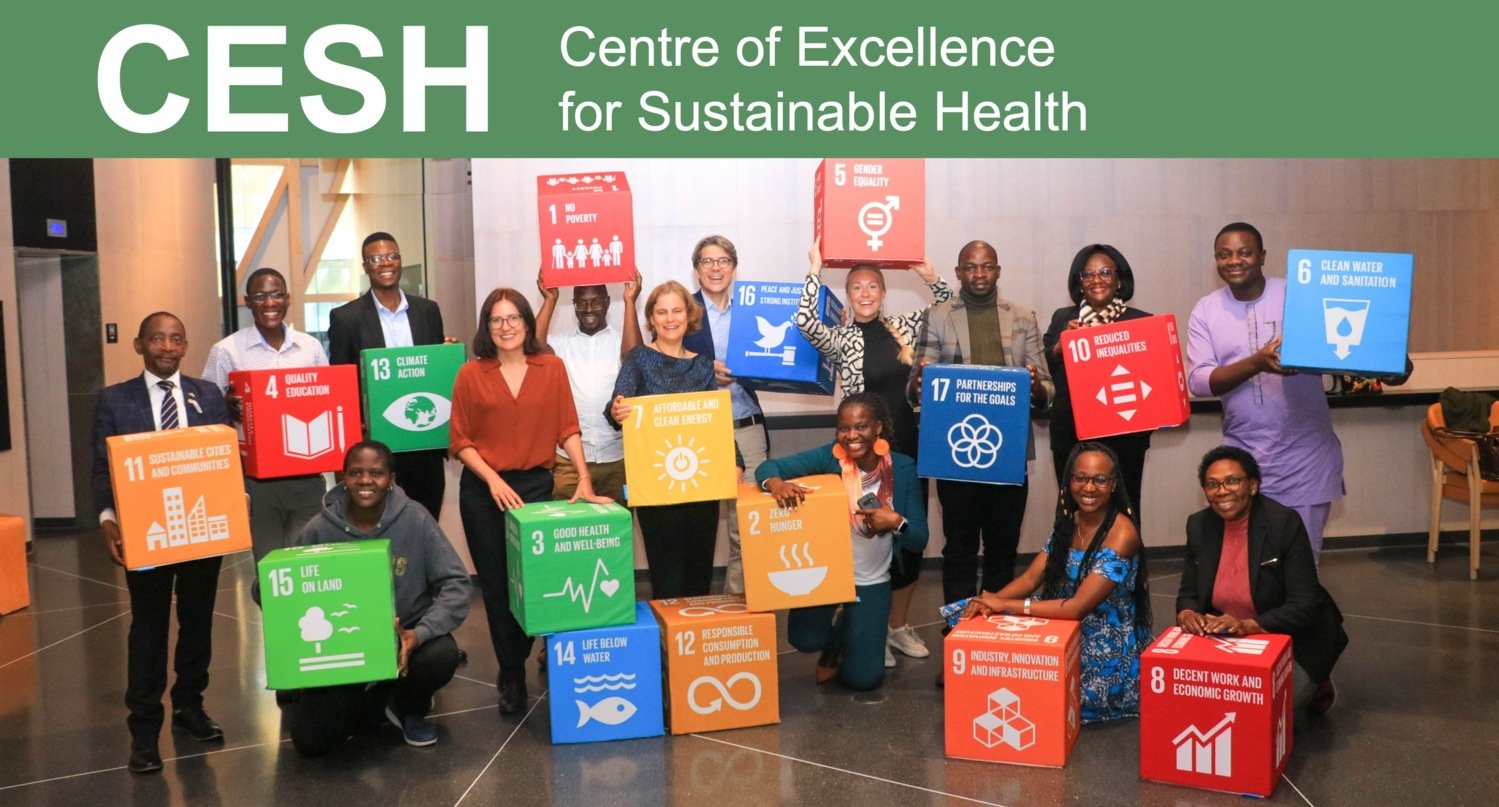
Collaboration timeline and impact
2000: Karolinska Institutet in Sweden and the College of Health Sciences at Makerere University in Uganda began building a strong partnership based on strategic planning, mutual trust, and a commitment to shared goals. The partnership initially focused primarily on research.
2003: The collaboration was formalized through a Memorandum of Understanding and an agreement for doctoral education signed by both institutions. Since then, it has expanded to include faculty and student exchanges and has fostered the development of an active alumni network of health professionals and researchers.
2021: The Centre of Excellence for Sustainable Health was established to further strengthen the partnership and expand its scope. The Centre has made significant contributions to research and cultivated impactful partnerships across various educational and leadership programs. Impact of the Centre
2003 - 2024: 49 PhD theses defended by Makerere University students, with 34 earning double degrees. Through Sida, EU, and KI scholarships, the partnership has enabled the exchange of 93 students and 61 lecturers from Makerere University to KI, and 148 students and 92 lecturers from KI to Makerere.
About the delegation
The delegation from Karolinska Institutet included:
- Annika Östman Wernerson, President of Karolinska Institutet, Professor of Kidney and Transplant Science
And members of the Centre of Excellence for Sustainable Health (CESH):
- Tobias Alfvén, Paediatrician and Clinical Professor of Global Child Health, co-chair of CESH
- Stefan Swartling Peterson, Public Health Physician and Professor of Global Health, member of CESH Steering committee
- Susanne Guidetti, Professor in Occupational Therapy, responsible for the NCD research area within CESH
- Helena Lindgren, Professor in Reproductive Health, leader of the MIDWIZE program
- Johanna Blomgren, PhD Student, member of the MIDWIZE program, coordinator of the Global Conversations
- Monika Berge-Thelander, International Coordinator for CESH
- Kseniya Hartvigsson, Multimedia Production & Communication
